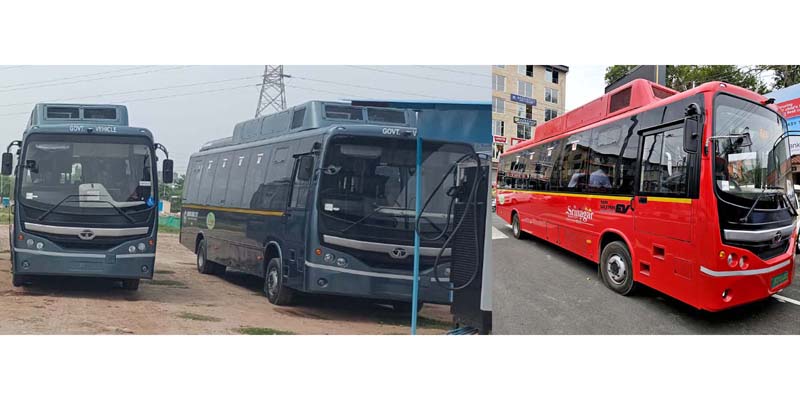
The advent of air-conditioned, environment-friendly e-buses on the Jammu, Katra, and Udhampur routes marks a significant step forward in public transportation for the region. The introduction of these 12-meter-long e-buses with high-back seats and a 34-passenger capacity promises a much-needed respite for travellers, especially during the scorching summer months. The e-bus initiative, managed by Jammu Smart City Limited (JSCL), not only aims to provide a comfortable and eco-friendly travel option but also aligns with broader goals of sustainable urban mobility. This initiative demonstrates a forward-thinking approach, combining modern technology with environmental consciousness. The decision to operate these buses on a Gross Cost Contract with TATA ensures that operational and maintenance costs are efficiently managed, with the company responsible for providing drivers and bearing maintenance and electricity expenses. However, the current underutilization of the 75 e-buses running intra-city in Jammu due to public unfamiliarity and fare concerns highlights the need for robust public awareness campaigns.
JSCL’s plan to raise awareness post-elections is a crucial step towards increasing ridership. Educating the public about the benefits, affordability, and convenience of these e-buses will be essential to their success. Additionally, the infrastructure supporting these buses, such as fully functional charging stations in Udhampur, Kathua, and Katra, ensures their operational viability. The significant range of up to 225 km on a single charge for the larger e-buses and 180 km for the smaller ones underscores their practicality for both intra-city and inter-city travel. Nevertheless, some areas need improvement. The absence of fare concessions for physically disabled persons, senior citizens, and women is a point of concern. Inclusive policies should be considered to ensure that these services are accessible to all segments of society. Furthermore, the integration of modern amenities such as CCTV cameras, live tracking, and digital ticketing systems enhances security and convenience, but widespread public adoption will hinge on effective communication and ease of use. By addressing initial teething issues and ensuring comprehensive public engagement, this initiative can set a benchmark for sustainable and inclusive urban mobility in Jammu and Kashmir.

